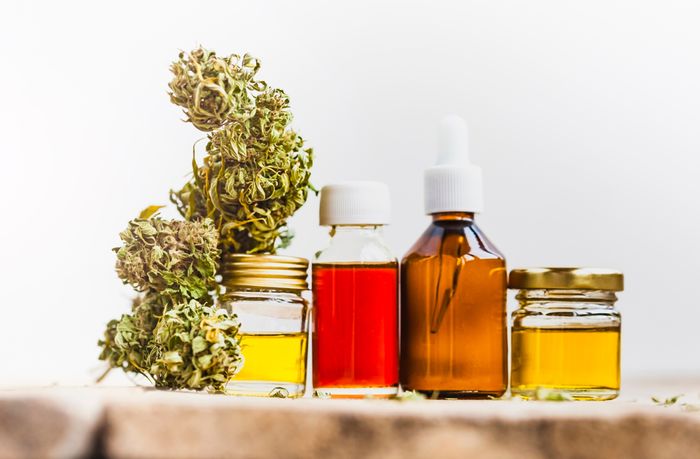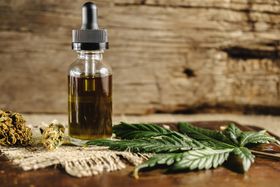For Beginners: Which CBD Products and Doses May Help With OCD
Updated September 20, 2023.

Obsessive-compulsive disorder (OCD) is a disease that causes consistent unwanted thoughts and sensations, or the urge to repeat an action over and over again. It's important that you understand OCD to be a serious mental illness, and that normal habits such as biting your nails do not classify as obsessive-compulsive behaviour. An obsessive thought might be that certain days of the month are particularly bad and is associated with severe anxiety, while a compulsive habit might be the urge to flick a light switch on and off seven times every time you enter or exit a room.
Obsessive-compulsive habits can be so powerful and detrimental that they are completely beyond your control, not enjoyable, and take up multiple hours of your day. Though doctors aren't exactly sure what causes it, they theorise that symptoms can be triggered or exacerbated by stress, trauma, depression, or anxiety.
OCD is currently incurable, but symptoms can be managed to varying degrees of success in different individuals. Common treatments for OCD include psychotherapy, relaxation practices like meditation, medications that are also used as antidepressants, and, in extreme cases, the use of devices that alter the electrical energy of your brain in certain areas through a process called neuromodulation.
Since many individuals are advocating for the use of CBD in the treatment of depression and anxiety, it begs the question of whether CBD oil could be used to calm your OCD. This article looks at the efficacy of using CBD oil as a treatment for OCD thoughts, as well as a guide as to how you should go about doing this.
Does CBD Really Help With OCD?
As it turns out, there is some scientific evidence to support the belief that CBD can help calm your OCD. It seems to exhibit anti-compulsive effects in various animal models, and there is a growing body of anecdotal evidence to suggest many people are finding some relief in using CBD oil for OCD thoughts.
More studies are emerging that support the belief in the body's endocannabinoid system (ECS) playing a role in anxiety, fear, and repetitive behaviours. Cannabinoids (CBD included) may influence the ECS by binding to specific cannabinoid receptors (CB1 and CB2) and assisting it in modulating mood, fear response, and repetitive behaviour, which is the believed reason for CBD's seemingly positive effects on the symptoms of various anxiety and mood-related disorders.
One study found that patients who smoked cannabis (that contains CBD) had improvements to their anxiety conditions and OCD behaviours, while also making note of further case reports that found notable improvements to OCD patients treated with various cannabinoids.
What is the Best CBD Oil for OCD?
There have been instances that cannabis has either triggered or exacerbate mental disorders, though this is commonly understood to be attributed to THC, the psychoactive component of cannabis, and not CBD. In fact, researchers have found that higher concentrations of CBD seem to prevent or even counter these potentially negative effects of THC.
Though no legal CBD products will contain any more than 0.2% THC, there have been occurrences of unreputable companies getting away with falsified reports of what their products contain. For that reason, to be on the safe side, you'll want to steer clear of full-spectrum products as these contain the highest allowed concentrations of THC.
That being said, researchers have found that the beneficial effects of CBD may work better when combined with other cannabinoids and terpenes in something called the entourage effect. For this reason, your first choice of product should be broad-spectrum as these contain CBD and a number of other compounds found in hemp, just not THC. If, on the other hand, you find yourself being too sensitive to these other components, you do have the choice of CBD isolates as these contain nothing other than CBD.
CBD Products That May Relieve OCD Symptoms
The type of CBD product can come in many forms, such as topical CBD oils, creams, and lotions that you rub onto your skin, e-juices inhaled through vapes, edibles in the form of gummies or baked goods, and oils and tinctures that you take sublingually.
For calming your OCD, you might have the most luck with a combination of oils and tinctures taken sublingually in order for the ease of use and fast-acting effects, as well as edible gummies to give you a slow release of CBD throughout the day. For sublingual application, simply hold a few drops of the CBD oil or tincture for at least 30 seconds before swallowing.
Additionally, some individuals with OCD suffer from excessive scratching or picking of their skin, which can lead to scars and inflamed skin conditions. In this instance, you might have some luck using CBD topicals to assist your body in reducing the inflammation in those areas and helping yourself heal.
For specific products, any of the following Cannabotech items may be of some use to you:
Stress and Sleep Support
- Relax Drops
- Beauty Sleep Drops
Mood Support
- Uplift Drops
How To Find the Right CBD Dose for OCD
Unfortunately, there is no "correct dose" for CBD products. One individual may experience completely different effects to another at similar doses, and so it's really a process of trial and error until you can figure out what works best for you.
Luckily, CBD has a relatively low risk attached to it. The golden rule is to start small and work your way up, giving yourself at least a week before deciding if you need to up the dosage. Always increase your dose incrementally and allow the necessary time for an accurate assessment.
Conclusion
Although you might have some luck using CBD to calm your OCD thoughts and behaviours, you should always exercise caution when trying to treat mental disorders on your own. You should always consult a doctor before doing so as CBD may interact negatively with prescription medication, including SSRIs that are commonly prescribed to OCD patients.









